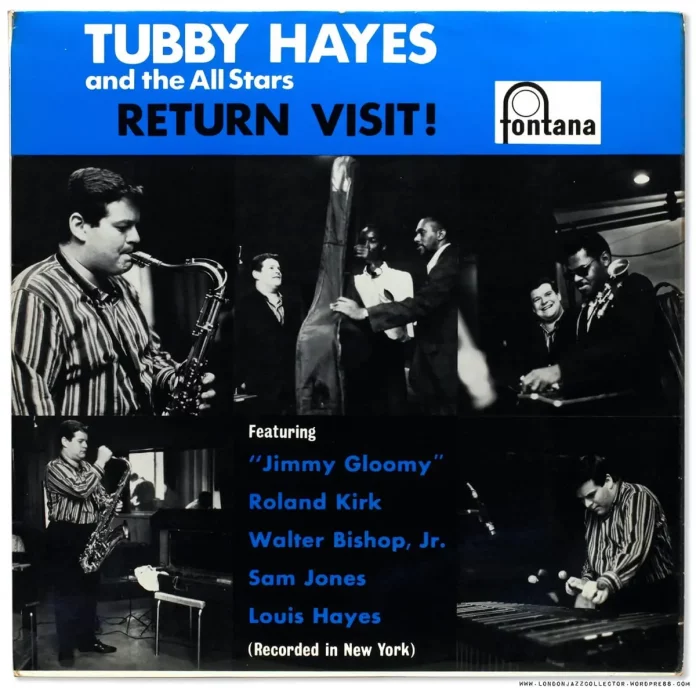This is an achievement by Hayes—for the first time we have the chance to evaluate his talent against those of some American top-liners, and he is not found to be wanting. I imagine the combination of the three front-line men must have been mutually stimulating, and the results show them to have been both versatile and well on form.
In a recent letter Roland Kirk told me that he had been most impressed by Hayes and had, as he put it, “enjoyed the session immensely”. Further confirmation of adaptability is given by the fact that the three musicians involved had hardly heard of each other (until he unpacked his sax, Jimmy Moody thought that Tubby was a rock ‘n’ roll singer) before the session.
The strongest material is the two Kirk originals, “Third” and “Lady”, which is presumably dedicated to his wife Edith. Kirk’s ability to write good jazz numbers is rather overlooked in the welter of his virtuosity—all his material is robust and original, well suited to the hard and honest swing turned out by this group. Lewis’ “Afternoon” is handled more roughly than usual, but retains its mellow flavour despite some gangster-type tenor from the Americans.
Tubbs does well by “Alone”, a peculiar mixture of soft emotion and hard drive. Roland’s extraordinary solo on “Heaven” is played on a reedless tenor, using a trumpet embouchure against the mouth-piece and some freak fingering. It is fairly simple to produce this kind of noise on any reed instrument (remove the mouthpiece on a clarinet, for instance, and blow down the barrel) but how on earth Kirk extracts such a range and manages to stay in tune will, as far as I can see, remain a mystery.
The doubling instruments are all handled with as much skill as the tenors. Kirk turns out the roaring flute sounds which helped to make “We Free Kings” such a knock-out, and Hayes’ vibes make a nice comparison with his Stitt-like tenor. Moody’s flute work shows a fine sense of melody—indeed, this is a melodically appealing record throughout, and a nice change from some of the skull-crushing experiments which one is obliged to sit through these days.
Discography
Afternoon In Paris; I See With My Third ‘I’; Lady ‘E’ (18½ min)—Stitt’s Tune; If I Had You; Alone Together; For Heaven’s Sake (19 min)
Hayes (ten, vibes); Jimmy Moody (ten, flute); Roland Kirk (ten, flute, nose-flute, manzello, strich); Walter Bishop (p); Sam Jones (b); Louis Hayes (d). NYC, 23 June 1962.
(Fontana STL 5195 12inLP 33s. 1d.)
















